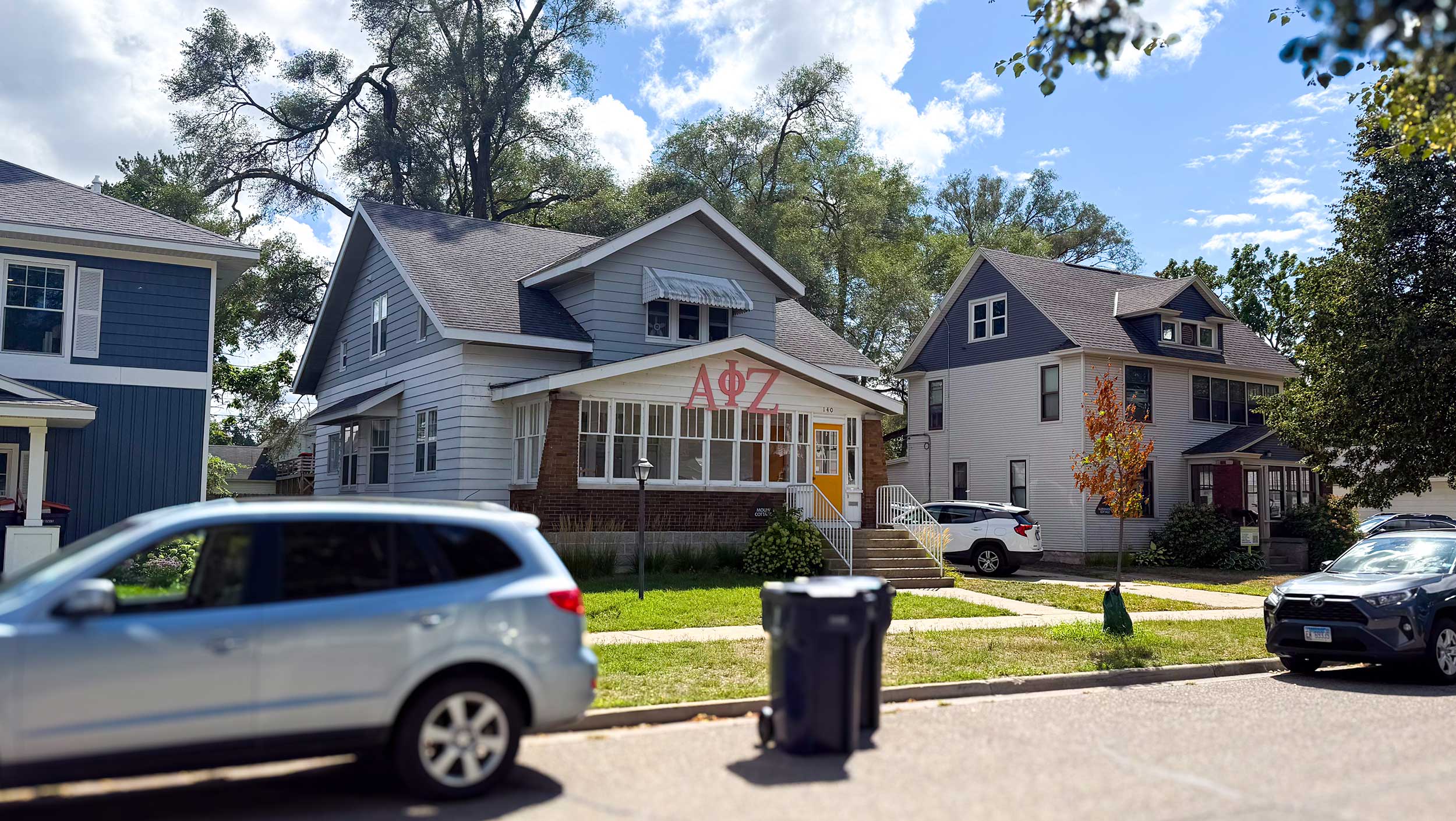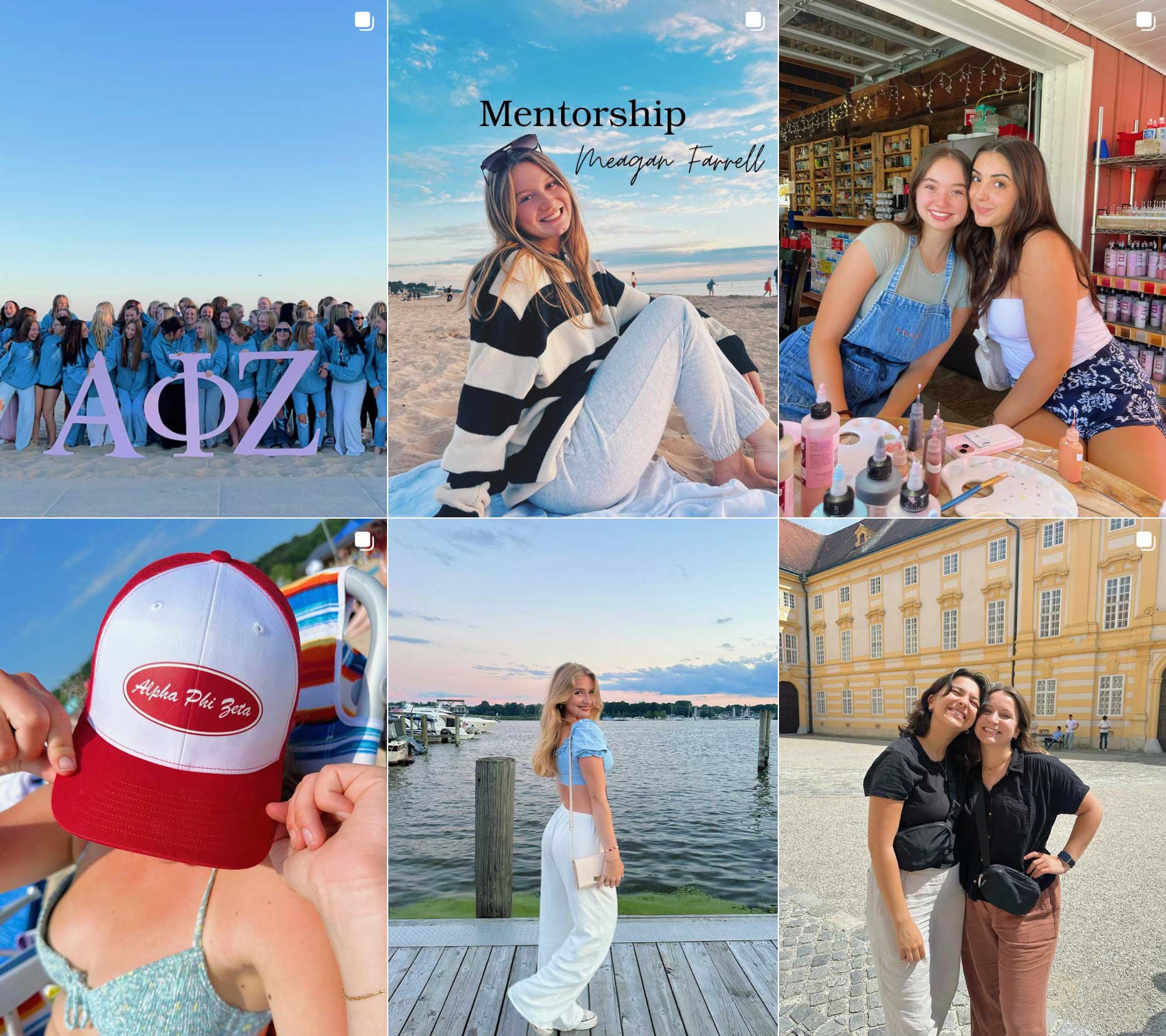

The internet tends to highlight the flashy moments tied to Greek life—the party scene, viral dancing videos, rush week, and the stereotypical attributes of its members. But this narrow lens overshadows the deeper, long-standing traditions and values that have carried these organizations through centuries.
Beyond the Stereotypes
Take a moment on social media, type in Michigan Alpha Phi, Alabama Gamma Phi Beta, or Michigan Sigma Chi, and you’ll likely be met with endless aesthetically-pleasing posts of choreographed recruitment videos, perfectly curated outfits, and the appearance of exclusivity.
These are the images that dominate the online perception of Greek life—flashy, uniformed, and easy to stereotype.
But while these posts rack up millions of views, and may even earn their spot in a documentary (shoutout to Bama Rush), they tell only a mere fraction of the reality behind these organizations.
Sure, when you look at the larger division schools like the University of Alabama or the University of Michigan, you see a system that often emphasizes a spectacle—massive, lavish houses, highly publicized recruitment weeks, and chapters with memberships well into the hundreds.
But, at smaller colleges, the scale is different. So is the culture. It’s without the pressure to perform where camaraderie flourishes.
These Greek organizations lean into tradition, intentional connections, and values that don’t always translate into a viral dancing video, but carry a much deeper impact that lasts beyond their four years.

Greek Life, The Hope College Way
Now, look up Arcadian Fraternity, Alpha Phi Zeta, or Delta Phi. These are a few of Hope College’s Greek organizations. Here, you witness a very different spectacle—heartfelt, relatable posts filled with close-knit brotherhoods and sisterhoods. Of course, it still takes on a similar aesthetic, but the scale has drastically narrowed.
We see the same few faces across their social media pages.
There’s a greater sense of authenticity and intimacy—a feeling that members truly know one another and contribute to the cultivation of the organization’s identity.
They live the reality that everywhere they go, they encounter a familiar face. When passing through campus, they exchange a quick hello. When picking their “little,” they gain a new connection.
When arriving back to their cottage, they're greeted by a brother or sister. They organize a formal event where the enjoyment of one another's company is at the center.

It’s truly a rhythm of daily connection that reinforces this sense of belonging, continuity, and shared purpose.
And this is what we see with smaller division colleges—shared experiences, intentional connections, friendships forged through service projects or intramurals, and most importantly traditions.
Hope College is a prime example of this.
The Arcadian Fraternity flourishes with its Service, Love, and Wisdom motto. The Aletheans thrive with their Truth, Love, and Mentorship motto.
Each organization emphasizes different values that guide members beyond social events on campus, fostering a sense of collective purpose that lasts well after graduation.
Of course, all new members go through the rush process and subsequently the orientation process once they accept their bid. While some may initially perceive this as hazing (which at smaller colleges it’s not) it is really designed to introduce pledges to the organization’s traditions and values.


So what does this all mean?
It means that Greek life serves a purpose far greater than a series of viral moments or curated aesthetics, especially on smaller campuses. It fosters a living community where traditions are upheld, values are practiced, and connections are formed.
So when you think about “frat” or “sorority,” don’t let your mind go straight to stereotypical blondes and backwards hats.
Instead, think of close-knit communities that support one another, engage in service, and carry forth legacies that extend beyond the campus grounds.
At Hope College, it’s truly about networking.

Sierra Ozolins is a West Michigan native, currently a student at Hope College. As an athlete, she is passionate about fitness—from running to weightlifting. With a interest for politics and lifestyle, she is intrigued how local culture, community, and everyday events shape the world around her—often with an iced coffee in hand and her dog by her side.